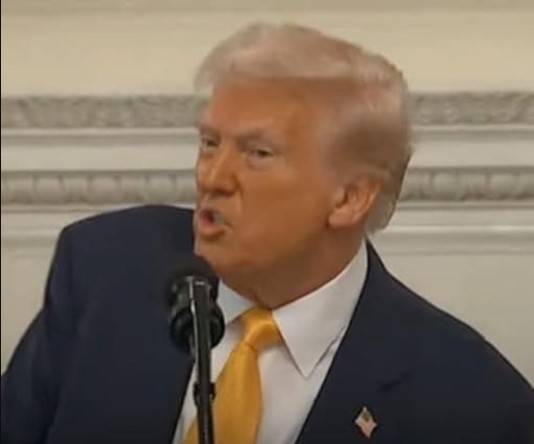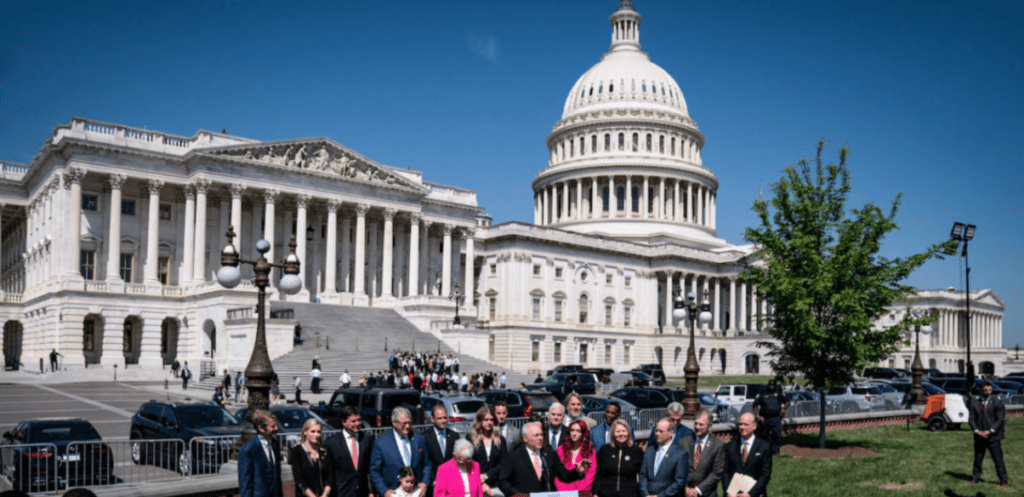A recent high-level meeting at the White House has intensified the national debate over the participation of transgender women and girls in sports. On February 21, state governors and senior officials gathered to discuss an executive order aimed at preventing transgender female athletes from competing in women’s sports. The directive, introduced by the Trump administration, has ignited strong reactions from both supporters and opponents, raising questions about civil rights, federal authority, and state autonomy.

A Divisive Debate Unfolds
The meeting was marked by a dramatic confrontation between President Donald Trump and Maine Governor Janet Mills. Mills found herself at the center of the discussion as the only state leader present who opposed the new policy. The exchange between the two leaders highlighted the growing ideological divide between those advocating for federal intervention and those defending states’ rights in determining policies on transgender athletes.
The Context of the Controversy
The executive order stipulates that states must enforce the ban on transgender women competing in women’s sports or risk losing federal funding. The administration argues that the policy is necessary to maintain fairness in athletic competitions by ensuring that participants meet specific biological criteria. Supporters believe this is a critical step in protecting the integrity of women’s sports.

Opponents, however, view the directive as an overreach of federal power that discriminates against transgender individuals. Critics argue that it disregards existing legal protections, fails to consider the complexities of gender identity, and could have harmful consequences for transgender youth. For Maine, a state known for progressive policies on transgender rights, the order posed a significant challenge, forcing its leadership to take a stand against the federal mandate.
Tensions Rise in the Oval Office
As the discussion progressed, President Trump directly addressed Governor Mills, demanding to know whether Maine would comply with the executive order. “Are you not going to comply with it?” he asked, making it clear that noncompliance would come with consequences.
Governor Mills, maintaining her composure, responded firmly. “I’m complying with state and federal laws,” she stated, signaling her refusal to be pressured into enforcing a policy that conflicted with existing state and federal legal frameworks. Her response underscored a fundamental disagreement over governance—whether such policies should be dictated by the federal government or left to individual states to decide.
The President escalated the rhetoric, warning that failure to comply would lead to severe financial penalties. “We are federal law, you better do it. You better do it, because you’re not going to get federal funding… Your population doesn’t want men in women’s sports,” he declared, framing the issue as one of protecting fairness in athletics.
Governor Mills, refusing to back down, delivered a defiant response. “We’ll see you in court,” she said, signaling her intent to challenge the order through legal means. Her statement reinforced the determination of states that oppose the mandate and are prepared to fight it through judicial proceedings.
Broader Implications for Civil Rights and State Authority
The clash between the federal government and state leadership over this issue is emblematic of a broader struggle regarding transgender rights in America. While supporters of the order believe it is necessary to preserve fairness in sports, opponents argue that it is discriminatory and infringes upon states’ rights to set their own policies. The debate also raises concerns about the use of federal funding as leverage to enforce compliance, a tactic that could set a precedent for future policy disputes.
Legal challenges to the executive order are expected, as states like Maine push back against what they view as unconstitutional overreach. Advocacy groups and civil rights organizations are also preparing to challenge the policy in court, arguing that it violates the rights of transgender athletes under existing anti-discrimination laws.
As the nation continues to grapple with these complex issues, the outcome of this battle will have lasting implications for both the rights of transgender individuals and the broader balance of power between state and federal governments. With legal battles looming, this debate is far from over, and the final decision may ultimately rest in the hands of the judiciary.